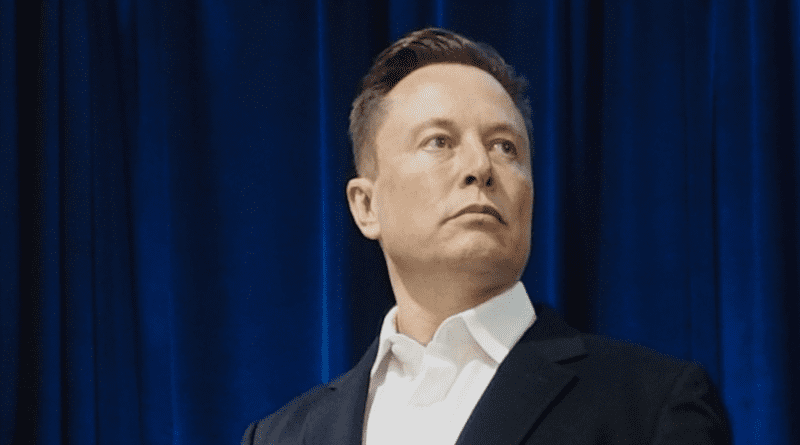Peter Pan Man: Elon Musk’s Rebranding Of Twitter – OpEd
“X” marks the spot. For the modern advertiser, this is problematic. It breathes pornographic escape, self-denial, elusive treasure, irresistible capture, compelling lasciviousness. And now Elon Musk has decided to impose himself upon a brand he loved as a plaything of juvenile ecstasy. Farewell the bird of Twitter; welcome the X of Musk.
The company rebrand is certainly all Muskian in manner, part of his monomaniac obsession with the letter. In 1999, he created the online bank X.com, which eventually merged with PayPal the following year. Just shy of two decades later, Musk reacquired the X.com site from PayPal. Over time, it seems to have become an ideology and practice, a purpose and an end. X is seen as an “everything app” that will function as a platform to transfer money, order meals, and share posts.
Linda Yaccarino, the company’s chief executive, described it as follows: “X is the future of unlimited interactivity – centered in audio, video, messaging, payments/banking – creating a global marketplace for ideas, goods, services, and opportunities”. As if this did not sound sinister, Yaccarino also declared that there was “absolutely no limit to this transformation. X will be the platform that can deliver, well….everything.”
Like a spreading cult, it has rushed through the Musk empire, afflicting all manner of products and themes. Twitter even has conference rooms with X-oriented names, be they the cringeworthy “eXposure”, or the less revolting “s3Xy”.
For even the most junior of advertising minions, the whole matter has been an example of counter-intuitive madness. “It’s a rookie mistake to throw away decades of equity in those assets [the name Twitter and the blue bird logo],” remarked marketing consultant Gareth Turner. Negative assessments of the rebrand exercise have suggested that billions of dollars have been wiped from the value of the company.
The company is being tanked with a fanatic’s relish, submerged in a sea of depraved indulgence. Its mutilating, despoiling owner hardly seems to care. In the meantime, there is a lot of management rot that’s crept in, just to replace the initial management rot that seeped through prior to Musk’s acquisition.
The substance of the rebrand, for all the lamentations about extinguishing the bird logo, is hard to discern. There is the lexical dimension, which seems to have bothered a goodly number of social media users. What, for instance, are posts on the renamed platform meant to be? Has the verb of tweeting been abandoned altogether? According to the Associated Press stylebook, the platform is to be referred to “as X, formerly known as Twitter.” Usage of the term “tweet” is still considered acceptable.
Beyond the labels, the Musk experiment remains infantile. Far better to simply reflect on the boy-child nature of the entire enterprise, a Peter Pan mad venture that rejects adulthood in favour of an arrested, preserved adolescence. The video game designer Ian Bogost is certainly on to something in noting that “Twitter, like other social platforms and the very internet itself, is already redolent of a seventh grader’s mindset that Musk’s behaviour betrays.”
The seventh grader mindset is one based on noise, shouting, and deafening declarations. It repudiates the notion of trusted small communities, where limits and protocols of good conduct matter. “The shift from social networks to social media,” writes Bogost, “was culturally destructive. It set the expectation that everyone deserves – is owed, even – an audience for every notion, quip, photo, or activity.” The consequences that follow have been manifold: the surfeit of public data, the stratospheric rise of the outrage culture, the prevalence of misinformation, the normalising of shame.
As if to serve up a perfect illustration of the problem, Musk decided last month to fire off a number of social media posts challenging his technology rival and Meta CEO, Mark Zuckerberg, to a penis “measuring contest” and cage fight. Much of this came about because of Zuckerberg’s own efforts to create Threads, a shameless rival platform to Twitter that apes many microblogging features of the latter. Aiming low, Zuckerberg agreed, requesting that Musk send him the location. “Vegas, Octagon,” Musk shot back. To date, the man child bullies have yet to go through with their arrangements, which was hardly surprising.
In a sense, Musk and Zuck resemble the generation of another era, one so beautifully and plangently captured by Cyril Connolly in his memoir, Enemies of Promise. Published in 1938, a year before the catastrophe of the Second World War, it captures a distinct, spoilt view of human development, one where privilege and luxury blight, and where growth is to be feared. On leaving Eton, Connolly distilled his “Theory of Permanent Adolescence”, where the “boys at the great public schools” undergo experiences “so intense as to dominate their lives and to arrest their development.” For Musk and his fellow tech nerds, the future is a necessarily stunted one.

